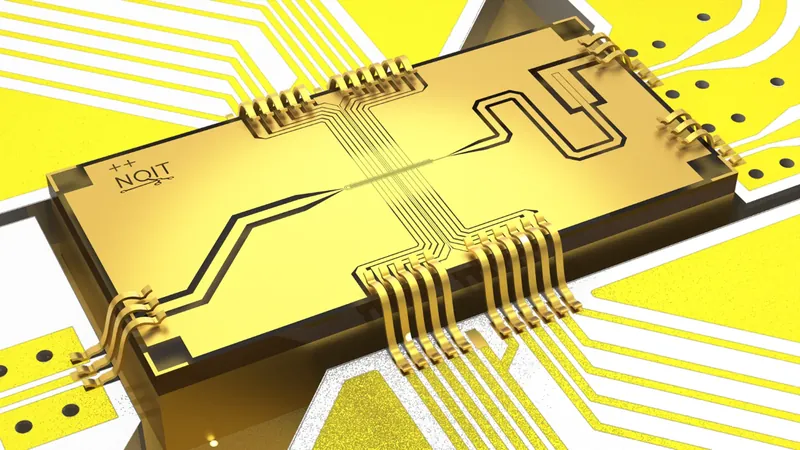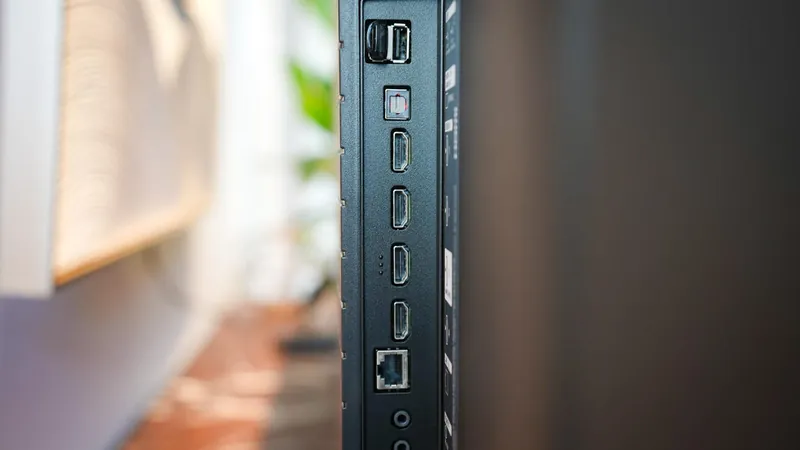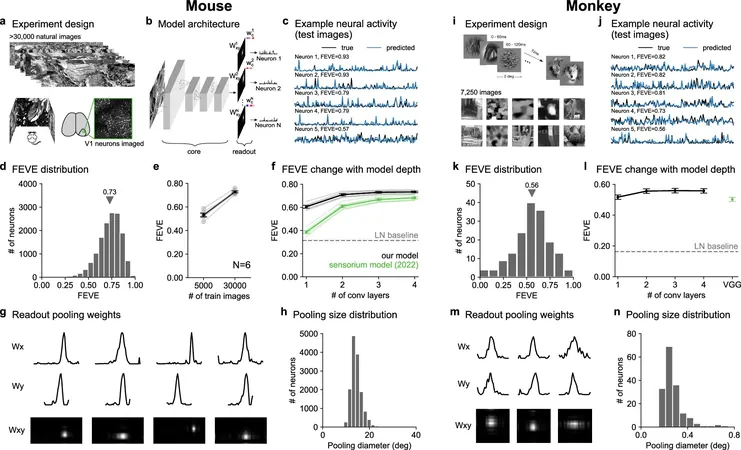
Oxford Breaks Quantum Records: A Leap Towards the Future of Computing
2025-06-10
Author: Jia
Think being struck by lightning is rare? Well, you're more likely to experience that (1 in 1.2 million chance) than a single quantum logic gate malfunctioning at Oxford University! That's just how groundbreaking their latest achievement is.
Published in the prestigious *Physical Review Letters*, this research marks a monumental step toward creating stable and practical quantum computers that can address real-world challenges.
Co-author Professor David Lucas from the University of Oxford's Department of Physics declared, "This is the most accurate qubit operation ever recorded globally, setting the stage for quantum computers to solve complex problems effectively."
Quantum computing relies heavily on executing millions of operations across numerous qubits. High error rates can render these calculations pointless. While error correction techniques exist, they require additional qubits, which complicates the process and increases costs. Thankfully, this revolutionary method significantly lowers error rates, thereby minimizing the qubit count needed and streamlining the entire system.
Molly Smith, co-lead author and a graduate student at Oxford, emphasized the impact of this advancement: "By dramatically slashing error probabilities, our research paves the way for smaller, quicker, and more efficient quantum computers. This precise qubit control also benefits other quantum technologies, including advanced clocks and cutting-edge sensors."
The record-breaking precision stems from using a trapped calcium ion as a qubit, chosen for its longevity and resilience. Unlike traditional methods that employ lasers, the Oxford team utilized electronic signals (microwaves) to manage the quantum state of the ions.
This innovative approach offers exceptional stability and benefits, such as cost-effectiveness and ease of integration into ion trapping chips. Remarkably, the experiments were conducted at room temperature without magnetic shielding, simplifying the requirements for a successful quantum computer.
Previously, Oxford achieved a single-qubit error rate of 1 in 1 million back in 2014. This persistence spearheaded the founding of Oxford Ionics in 2019, now a leading name in high-performance trapped-ion qubit technology.
Despite this achievement being a significant milestone, the researchers remind us that the journey is just beginning. Quantum computing requires not only single-qubit gates but also two-qubit gates, which currently have higher error rates (around 1 in 2000). Tackling these challenges is essential to realize fully fault-tolerant quantum systems.
The groundbreaking experiments were carried out by an accomplished team at Oxford, including Molly Smith, Aaron Leu, Dr. Mario Gely, and Professor David Lucas, alongside visiting researcher Dr. Koichiro Miyanishi from Osaka University. They are also part of the UK Quantum Computing and Simulation (QCS) Hub, a cornerstone of the UK's National Quantum Technologies Programme.




 Brasil (PT)
Brasil (PT)
 Canada (EN)
Canada (EN)
 Chile (ES)
Chile (ES)
 Česko (CS)
Česko (CS)
 대한민국 (KO)
대한민국 (KO)
 España (ES)
España (ES)
 France (FR)
France (FR)
 Hong Kong (EN)
Hong Kong (EN)
 Italia (IT)
Italia (IT)
 日本 (JA)
日本 (JA)
 Magyarország (HU)
Magyarország (HU)
 Norge (NO)
Norge (NO)
 Polska (PL)
Polska (PL)
 Schweiz (DE)
Schweiz (DE)
 Singapore (EN)
Singapore (EN)
 Sverige (SV)
Sverige (SV)
 Suomi (FI)
Suomi (FI)
 Türkiye (TR)
Türkiye (TR)
 الإمارات العربية المتحدة (AR)
الإمارات العربية المتحدة (AR)